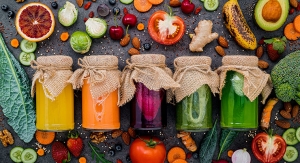12.28.16
Coffee sales are going strong, according to market research firm Packaged Facts. The U.S. market for packaged and ready-to-drink coffee sold at retail was estimated at $13.5 billion in 2015, up almost 10%. By 2020, Packaged Facts expects sales of packaged and ready-to-drink coffee in the U.S. to close in on $18 billion.
Growth in the industry can largely be attributed to three segments: single cup coffee, cappuccino/iced coffee and refrigerated ready-to-drink coffee. At the same time, traditional coffee products such as ground coffee and instant coffee have seen declines. Ground coffee is still the largest contributing segment to the category, although single-cup has been quickly closing the gap.
The findings were published in Packaged Facts’ new report “Coffee and Ready-to-Drink Coffee: U.S. Retail Market, 9th Edition.”
Packaged Facts noted that retail dollar sales continue to grow largely because of the category’s continued reinvention, whether from k-cups or ready-to-drink varieties or cold brew. The rising popularity of single-cup coffee options, as well as iced coffee and cappuccino, points back to an evolving population of coffee drinkers.
“The coffeehouse revolution created a new generation of consumers who appreciate premium and specialty coffee,” said David Sprinkle, research director, Packaged Facts. “Retailers see the generational shift in the coffee category playing out on supermarket shelves.”
Many older and more traditional consumers are still purchasing ground coffee in cans. Another large consumer segment came of age being exposed to specialty coffee, and that group views canned coffee as outdated and unpalatable. The retailer’s consumer base is now highly polarized.
Some retailers have tried to shift their assortment to address the new coffee consumer by making major cuts in canned coffee, and found that they had alienated an important shopper segment. Retailers increasingly adapt to the changing market landscape by aiming for a “total coffee” section that is relevant to multiple generations of coffee users. Retail specialists note that supermarkets should recognize that the overall coffee category is on a solid growth trend, with some segments of excellent growth. Retailers can consider cutting back in other slow-growing categories to give the coffee section adequate space to showcase all its strong segments and trends.
Growth in the industry can largely be attributed to three segments: single cup coffee, cappuccino/iced coffee and refrigerated ready-to-drink coffee. At the same time, traditional coffee products such as ground coffee and instant coffee have seen declines. Ground coffee is still the largest contributing segment to the category, although single-cup has been quickly closing the gap.
The findings were published in Packaged Facts’ new report “Coffee and Ready-to-Drink Coffee: U.S. Retail Market, 9th Edition.”
Packaged Facts noted that retail dollar sales continue to grow largely because of the category’s continued reinvention, whether from k-cups or ready-to-drink varieties or cold brew. The rising popularity of single-cup coffee options, as well as iced coffee and cappuccino, points back to an evolving population of coffee drinkers.
“The coffeehouse revolution created a new generation of consumers who appreciate premium and specialty coffee,” said David Sprinkle, research director, Packaged Facts. “Retailers see the generational shift in the coffee category playing out on supermarket shelves.”
Many older and more traditional consumers are still purchasing ground coffee in cans. Another large consumer segment came of age being exposed to specialty coffee, and that group views canned coffee as outdated and unpalatable. The retailer’s consumer base is now highly polarized.
Some retailers have tried to shift their assortment to address the new coffee consumer by making major cuts in canned coffee, and found that they had alienated an important shopper segment. Retailers increasingly adapt to the changing market landscape by aiming for a “total coffee” section that is relevant to multiple generations of coffee users. Retail specialists note that supermarkets should recognize that the overall coffee category is on a solid growth trend, with some segments of excellent growth. Retailers can consider cutting back in other slow-growing categories to give the coffee section adequate space to showcase all its strong segments and trends.



























